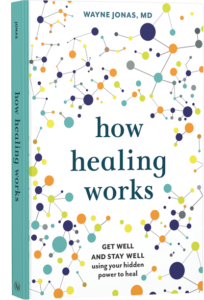Coronavirus. COVID-19. Social distancing, flattening the curve, sheltering in place.
This spring has brought, not just new life, but new words and a new way of being. Dealing with the impact of the outbreak is stressful, and things seem to change daily. Will I get the virus? Should I wear a mask? When will my store have toilet paper, and how long will this go on?
In this post, we’ll talk about what you can control. By strengthening your immune system and taking a few simple measures, you can do a lot to slow the spread of COVID-19 and function at your best, even now.
Support your immune system
The immune system is your body’s natural defense against infections, including new invaders like this coronavirus. It works 24/7 to protect you from viruses, bacteria and irritants. While we are still learning about the virus causing COVID-19, we already know a great deal about supporting the immune system.
Increase your virus resistance
Living in the middle of a pandemic, on stay-home orders with your entire family, affects more than just your physical health. It affects you mentally, socially and spiritually. If you live alone, you may be feeling incredibly isolated. If you’re with children or a partner who’s not usually there, you might feel smothered by all the closeness. Either way, you’re making new choices continually. Do I sanitize this package that just arrived? Am I standing 6 feet from the grocery checker?
Every one of those situations, choices and questions have the potential to chip away at your resilience – and resistance to disease. So, supporting your immune system helps everyone. Here are some ways to help that system work its best.
- Avoid smoking, drinking a lot of alcohol and taking drugs that were not prescribed for you. Your immune system includes T cells that search for and destroy substances that should not be present, such as the new coronavirus. Smoking, drinking more than a small amount of alcohol (for some, any at all) and taking drugs that are not prescribed keeps T cells from doing their best work.
- Get plenty of sleep. Lack of sleep makes you cranky and hungry, and lowers your resistance to stress and infections. If you’re working from home or your routine has changed otherwise, take advantage of the opportunity to sleep later in the morning. Slow down that binge watching and get to bed at a decent hour, too. Aim to follow the official recommendations for sleep by age and sex.
- Keep fit and get out in nature. These things boost the function of immune system cells called natural killer cells. Walk, hike, bike or run outdoors. We’ve seen plenty of parent-child exercise partners in the last couple of weeks. If bad weather or a less than pleasant environment keeps you inside, stream a free workout. Parade magazine released a list of the best free online workouts, from yoga to Broadway-inspired dance exercise. YouTube also has plenty of nature videos complete with birdsong, crashing waves and other calming sounds.
- Boost your intake of traditional immune-boosting foods. These are the foods your grandmother might have made when someone was sick. They include chicken soup and foods made with plenty of garlic, vitamin C and greens. Bananas and foods high in zinc, such as lean meats, peas and beans, can also help boost immunity.
- Try an herbal tea or virus-fighting extract. Consider getting more ginger, garlic, olive leaf, lemon balm and black elderberry extract in your diet. All these plants have some natural antiviral properties. Getting them in foods and drinks is best, such as drinking lemon balm tea or making a chicken soup with fresh greens, garlic and ginger. “Getting them from food makes it very hard to overdose,” says Dr. Jonas. “You also reap a benefit from the ingredients acting synergistically to boost your system.”
- Check with your health care provider before taking any supplements in pill or concentrated extract form. They may interact with medications you take regularly. For example, garlic pills can interact with blood thinners. Never take any new supplement without talking with your health care provider.
- Maintain social connections digitally. Missing your book club meeting or regular happy hour with workmates? Take it online via video chat. Or do something old-fashioned – make a regular voice call to someone.
- Spiritual life – Spring holidays are approaching, and they will be different this year. Instead of stressing, you can get together via video. Each household might want to cook its preferred dishes, or you can all plan the same meal and share it virtually. Many houses of worship are live streaming their services.
Manage your stress
If you are exposed to COVID-19 or another virus, your stress level can be a key factor in whether you actually get sick. If you feel stressed and overwrought, your body will perceive that you are more vulnerable, and you are more likely to get sick. You can try thinking of the stressor differently. For example, instead of saying, “I’m stuck at home,” say, “I am safe at home.” Here are some other tools to add to your stress management kit.
Try meditation
We have an audio meditation program available at healthjourneys.com to help support a healthy immune system. You can also watch a YouTube video on how guided imagery helps the immune system or check out this video we’ve created that shares a meditation and breathing exercise, lead by Dr. Jonas.
Other calming strategies
Writing in a journal and practicing gratitude are two proven ways to lower your stress level. In this popular video, Dr. Jonas explains three techniques for journaling. We also have a free guide to keeping a journal, the Caregiver’s Journaling Guide. Or try starting a gratitude practice. There are many ways to do this, including keeping a gratitude journal and writing letters or thank-you notes to loved ones. The simplest way is to jot down three to five things you are grateful for each day, from the good weather to a tasty meal.
Stay in recovery and keep habits healthy
If you are in recovery, this might be an especially challenging time. Connecting with help via SoberBuddy, attending online recovery meetings and talking by phone with a sponsor can all provide essential support for maintaining recovery, just as you would at other stressful times
Mind-body practices that induce the relaxation response can be especially helpful to reduce stress. Deep breathing is the foundation of all these, so set aside up to 20 minutes a day to sit or stand, take deep breaths into your belly and let them out. You will be calmer and better able to protect yourself from negative news or others’ stress throughout the day and evening.
Whether you are in recovery or not, the daily stress of living through a pandemic can induce unhealthy behaviors such as drinking too much alcohol, smoking when you previously quit or simply snacking way too much. Stock up on a non-alcoholic beverage you enjoy, refill any prescriptions for smoking cessation products if you are tempted to smoke and make sure you get outdoors or exercise as often as possible. If you have sugary snacks or comfort foods in the house, save them for specific times, so you’re not eating cookies for breakfast. Download our free quick guide to healthy eating here. The Mediterranean Diet is one of the most healthful around, including herbs, spices and healthy fats that can help boost your immune system. Find a pocket guide to it here.
Try a suggestion or a placebo
Your immune system also responds to suggestions. In one study, seeing a picture of someone fighting a cold activated participants’ immune systems to produce more of a substance called IL-6, which is part of the body’s infection-fighting response. Participants who saw pictures of a person pointing a gun at them did not have this immune system response.
Research also shows that the body will respond when your mind expects a treatment to be effective. For example, if you expect relief from a pain medication or trust a daily dose of Vitamin C to help keep you healthy, your body will respond positively to that expectation. Learn more about how this ‘placebo” response works.
Prevention is the best medicine
Nurturing yourself and maintaining a strong immune system are positive steps you can take to reduce your risk of getting and spreading COVID-19. But don’t neglect the simple preventive steps the U.S. Centers for Disease Control has asked everyone to take.
- Wash your hands regularly, or use a hand sanitizer with at least 60 percent alcohol.
- Cover your coughs and sneezes.
- Clean and disinfect your home and other areas. Pay special attention to areas that get touched or used often, such as light switches and your phone.
- Avoid unnecessary travel, groups of people and close contact, such as hugging, shaking hands or talking while standing close. Follow your state’s guidelines for how far to stay away from other people, usually at least 6 feet from those who don’t live with you.
- Stay home if you are sick, and keep away from others who are sick. If you had contact with someone who has COVID-19, stay alone for 14 days (quarantine) and call your doctor about possibly being tested.
- Wear a mask if you are sick or take care of a sick or older person.
When there is a COVID-19 vaccine, we will likely encourage you to get it. In the meantime, plan to get an influenza (flu) shot this fall to protect you from the flu, which makes many people sick and causes deaths every year. Taking care of yourself and your family takes some planning, so don’t forget to enjoy the journey. Cook up a big pot of soup, take a brisk walk or do some yoga and write a thank-you letter to a friend … perhaps with some immune system-boosting tips!

Your Health Into Your Own Hands
Drawing on 40 years of research and patient care, Dr. Wayne Jonas explains how 80 percent of healing occurs organically and how to activate the healing process.

